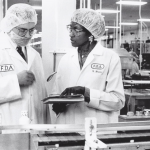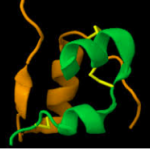Plants can be genetically modified to produce high-value pharmaceuticals, a practice called “biopharming.” Many of these "biopharmed" vaccines and other biologics do not require refrigeration, special handling, or sophisticated medical equipment to distribute them, making them ideal for middle and low-income countries. They are also cheaper to produce than our current methods and can help reduce the increasing costs of biologics. But these products have not yet entered the marketplace in part because of regulatory constraints.
Genetic engineering
This Halloween, don't be fooled into thinking that your choice of candy will help destroy or save the planet. Environmentalists and reporters will tell you otherwise. They're mistaken.
Another study highlights the overlap between genetic engineering in medicine and agriculture, offering another example of why the anti-GMO movement is losing its cultural relevance.
Though politicians and the public love to hate Big Ag and Big Pharma, everybody comes begging for help when the going gets tough. The arguments against biotechnology have been made exponentially weaker by the success of the coronavirus vaccine.
Andrew Wakefield, the godfather of the modern anti-vaccine movement, is spreading disinformation about the COVID vaccine, falsely claiming that the mRNA vaccines made by Pfizer and Moderna are a form of genetic engineering. Like all good liars, he mixes a tiny bit of truth into a sea of lies.
As new breeding techniques create new ethical debates over food, we think the ethical toolbox needs updating. Talking about crossing species lines simply isn’t enough. If Darwin had known about gene editing, we think he would have agreed.
A serious infectious disease nearly wiped out the beloved chestnut tree. Using genetic modification, scientists have found a way to bring it back. Of course, this is controversial because many environmentalists, such as the Union of Concerned Scientists, are only in favor of restoring the environment as long as scientists aren't involved.
This week marks the 37th anniversary of the approval of human insulin – the first biotech drug ever. Almost as revolutionary as the drug was its five-month approval by the FDA, which was two years less than average. Dr. Henry Miller celebrates the dawn of biotechnology. He should know. At that time he was in charge of the FDA team that reviewed it.
Just like fingerprints, we all have a unique set of behavioral quirks.
For example, I tend to drink triple shot, iced vanilla lattes. Before beginning my work, I clean off the table using water and a napkin. (Seriously, why are coffee shop tables always so disgusting?) And, oftentimes, I tip my glasses in a peculiar way as I write my articles.
None of these quirks is particularly unique. But taken together, I'm probably the only triple shot, iced vanilla latte-drinking, table-cleaning, glasses-tipping person in Seattle. If I ever committed a crime and the police were out to get me, this combination of quirks may be just enough to identify me.
A new kind of genetically engineered wheat is more efficient at absorbing phosphorus from the soil and, hence, should require less fertilizer.
European researchers have created genetically engineered yeast that are capable of reducing various kinds of heavy metal pollution by 80%.
What do consumers think about organic or genetically modified foods? Demographics don't seem to make a difference, but according to a recent survey "food ideology" does.











